Guests
People who have been guests of Brains Matter and that I’ve had the fortune to interview have been:
———————————–
Michael Feller – Michael wrote a thesis called “The Aryan Connection”, and discussed Nazis and their origins, and the neo-Nazis of today, and how it is affecting society.
4/12/2006 – Episode 8 – The Aryan Connection
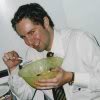
———————————–
Dr Djoymi Baker – Dr Baker wrote a PhD thesis entitled “Broadcast Space: TV Culture, Myth and Star Trek”, and talked to me about mythological references within Star Trek, and the reworking of ancient epics in modern formats.
18/2/2007 – Episode 18 – Star Trek and Mythology

———————————–
Professor Duncan Forbes – Professor Forbes works at Swinburne University and is the Deputy Director of Swinburne’s Centre for Astrophysics and Supercomputing. Professor Forbes talked to me around his interests in galaxy formation and globular clusters.
13/3/2007 – Episode 21 – Galaxies and Globular Clusters

———————————–
Professor John Lattanzio – Professor John Lattanzio is a stellar astrophysicist at Monash University, and is a member and fellow of many astronomical societies, including the IAU. I talked to him about stars and their formation, and his interest in AGB stars.
8/5/2007 – Episode 26 – Stellar Astophysics Part 1
14/5/2007 – Episode 27 – Stellar Astrophysics Part 2
31/1/2010 – Episode 108 – Is Intelligent Life Common in the Universe?
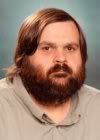
———————————–
Dr Alan Dorin – Dr Alan Dorin is a Senior Lecturer at Monash University’s Centre for Electronic Media Art in the Faculty of Information Technology. His interests are in the philosophy and application of the principles of artificial life, in particular self-assembly and ecosystem simulation, to generative electronic art. He talked to me about how he has used IT to pursue his work interests.
28/5/2007 – Episode 29 – Computers, Philosophy and Art

———————————–
Dr Zachary Moore – Dr Moore is from the Department of Biophysics and Molecular Genetics from the University of Texas Southwestern Medical Center at Dallas, and he talked to me about evolution.
16/6/2007 – Episode 30 – Understanding Evolution

———————————–
Dr Adrian Gentle – Dr Gentle is from the Department of Mathematics at the University of Southen Indiana; formerly of the Los Alamos National Laboratories, and an expert in Relativity and Regge Calculus. He talked to me about Special Relativity (episode 32), General Relativity (episode 33), and Regge Calculus (episodes 35 and 36)
7/7/2007 – Episode 32 – Special Relativity
13/7/2007 – Episode 33 – General Relativity
31/7/2007 – Episode 35 – Introduction to Regge Calculus
4/8/2007- Episode 36 – Regge Calculus

———————————–
Briony Rogers – Briony Rogers is a civil engineer for a multinational engineering firm, specialising in water. She is also the president of the Victorian chapter of Engineers Without Borders (Australia), and talked to me about engineering and EWB
5/9/2007 – Episode 38 – Engineers Without Borders

———————————–
Dr Roger Rassool – Dr Rassool is an elementary particle physicist from the University of Melbourne, and also runs a physics outreach program aimed at getting students interested in science.
10/9/2007 – Episode 39 – MUPPETS – Physics Outreach Program
16/9/2007 – Episode 40 – Particle Physics and PSI Lab research
22/9/2007 – Episode 41 – How elephants communicate
20/12/2008 – Episode 78 – Saving Asian Elephants Part 2
17/8/2012 – Episode 157 – Where is my flying car? Part 1
31/10/2012 – Episode 158 – Where is my flying car? Part 2
23/12/2012 – Episode 159 – Where is my flying car? Part 3
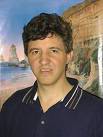
———————————–
Professor Peter Doherty – Professor Doherty won the Nobel Prize for Physiology in 1996, and was Australian of the Year in 1997. I talked to him about his work in immunology, his books, and his views on modern science.
7/10/2007 – Episode 42 – Immunology and the Nobel Prize

———————————–
Dr Mark Boland – Dr Mark Boland started his career in researching fundamental processes in the atomic nucleus. As a user of overseas synchrotrons and other accelerators he conducted nuclear experiments to how the nuclear force binds neutrons and protons together. When Victoria decided to build a synchrotron, Mark made the jump into accelerator physics so he could use his skill in physics back home and reverse the brain drain. Mark helped commission the synchrotron and has been with the facility for four and a half years.
24/10/2007 – Episode 44 – Australian Synchrotron Part 1
25/10/2007 – Episode 45 – Australian Synchrotron Part 2
7/9/2010 – Episode 124 – Update on the Australian Synchrotron
24/9/2010 – Episode 125 – Presentation on ACAS

———————————–
Professor Peter McIntyre – Professor McIntyre is the Head of Department of Pharmacology at the University of Melbourne, and completed his BSc and PhD in the Department of Biochemistry at LaTrobe university before postdoctoral fellowships at the Walter and Eliza Hall Institute and The Imperial Cancer Research Fund (now Cancer Research UK) Institute in London. He re-entered academic research in Oct 2005 after 16 years in the pharmaceutical industry working on drug discovery for chronic pain therapies with Novartis. He has published 13 papers in top ranked journals in the past 5 years and is a recognised leader in TRP channels. He talked to me about how we sense pain, the different types of pain, and their relationship to taste.
6/11/2007 – Episode 47 – Taste and Pain Part 1
13/11/2007 – Episode 48 – Taste and Pain Part 2

———————————–
Dr Pamela Gay – Dr Gay received her PhD in Astronomy from the University of Texas in 2002, can be found at the physics department at the University of Southern Illinois, Edwardsville, and is also one of the hosts of the Astronomy Cast podcast.
26/11/2007 – Episode 49 – The Big Bang
14/7/2008 – Episode 67 – Arms of the Milky Way

———————————–
Dr Todd Lane – Todd Lane earned his Ph.D. in Applied Mathematics and Meteorology from Monash University in 2000 examining the generation of atmospheric gravity waves by mountains and thunderstorms. Between 2000 and 2005 he worked at the National Center for Atmospheric Research (NCAR) in Boulder, Colorado USA. At NCAR his research was on many aspects of mesoscale meteorology, including thunderstorm dynamics, and clear-air turbulence. His current research interests include atmospheric dynamics, numerical modelling, and mesoscale meteorology.
9/1/2008 – Episode 51 – The experimental Helios NASA aircraft
18/1/2008 – Episode 52 – Turbulence and air travel

———————————–
Lynne Kelly – Lynne is an educator and author, and has a background in engineering, science, teaching, and magic. She is well known in the Australian Skeptics movement. She has an interest in education, science, and critical thinking.
9/2/2008 – Episode 54 – Skeptics Guide
4/3/2008 – Episode 56 – Critical Thinking & Education Part 1
9/3/2008 – Episode 57 – Critical Thinking & Education Part 2

———————————–
Professor David Karoly – Professor Karoly is the Federation Fellow at the School of Earth Sciences at the University of Melbourne. He is an expert on climate change, and was one of the lead authors of the IPCC report. He was also featured on the panel of the Australian Broadcasting Commission’s discussion of the tv show ‘The Great Global Warming Swindle’. Professor Karoly is also a Nobel Laureate, sharing in the 2007 Nobel Prize for Peace alongside Al Gore and other IPCC colleagues.
23/2/2008 – Episode 55 – Climate Change
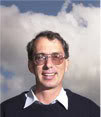
———————————–
Dr Geoffrey Campbell – Dr Campbell is an honorary research fellow from the school of mathematics from La Trobe University in Melbourne, Australia. Dr Campbell talked to me about the the mathematical genius, Srinivasa Ramanujan, and on his own research work.
18/3/2008 – Episode 58 – Srinivasa Ramanujan
27/4/2008 – Episode 61 – Visible Lattice Points
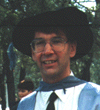
———————————–
Adam Parker – Adam is a former artist, is currently a musician and design expert, and is completing his PhD in robotics. Adam has an interest in robots, technology, design, and the philosophy behind all of the above.
30/3/2008 – Episode 59 – Robots and Science Fiction
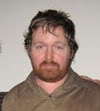
———————————–
Dr Hunter Mulcare – Dr Mulcare is a clinical health psychologist who has done research into gender studies, and drug related topics.
21/4/2008 – Episode 60 – Drug & Alcohol Research
20/5/2008 – Episode 64 – The Psychology of Cancer Patients

———————————–
Dr Sarah Maddison – Dr Maddison is an astrophysicist from the Swinburne University of Technology’s Centre for Astrophysics and Supercomputing. She is also the co-ordinator of the Swinburne Astronomy Online program. She talked to me about planetary formation.
6/5/2008 – Episode 62 – Planetary Formation – Part 1
13/5/2008 – Episode 63 – Planetary Formation – Part 2
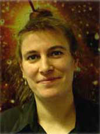
———————————–
Dr Pilar Gil-Pons – Pilar was born in Xativa (Spain) and went to the University of Valencia, to the Imperial College of London and to the University of Barcelona, where she got her Licenciatura (sort of a longer version of a bachelor of science) in Physics in 1998. Subsequently, she then got a grant from the Spanish Ministry of Education to do a PhD about the evolution of intermediate mass stars belonging to close binary systems. She completed her PhD thesis in 2003 and shortly afterwards got a position as collaborating professor at the Polytechnical University of Catalonia.
After her PhD, Pilar’s research has been related to the study of SAGB stars, especially at the extremely low metallicity regime. In 2007 she received an ARC grant to work on SAGB stars and she got a grant from the Spanish Ministry of education to work at Monash University for 6 months. I spoke to her in her office at Monash.
3/6/2008 – Episode 65 – Binary Stars
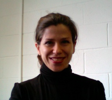
———————————–
Dr Seth Shostak – Seth is an astronomer with a BA in physics from Princeton and a PhD in astronomy from Caltech, and is involved with in the SETI Institute’s research. Before SETI, Seth did research work on galaxies using radio telescopes at observatories and universities in America and Europe. He spoke to me about SETI.
18/6/2008 – Episode 66 – The Search for Extra Terrestrial Intelligence
20/7/2008 – Episode 98 – Science and the movies
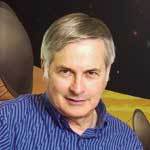
———————————–
Marc West – Marc is the host of the Mr Science Show, a science podcast, and was the science reporter for China Radio International. He is currently the editor for the maths magazine “Plus Magazine” in London. He is also a science writer and communicator.
13/8/2008 – Episode 68 – Fictional Scientists
3/2/2009 – Episode 84 – The Science and Psychology of Cricket – Part 1
10/2/2009 – Episode 85 – The Science and Psychology of Cricket – Part 2
6/3/2009 – Episode 87 – Science Songs

———————————–
Marco Tippmer – Marco is a Virtual World Strategy Consultant, and has over nine years experience in IT Consultancies working for government bodies, health, utilities and finance organisations in several European Countries. His focus is on IT Strategy Development, combining established and emerging technologies to create innovative solutions and solve complex business problems.
His involvement in Second Life started back in September 2006 with the setting up and opening of PA Consulting’s virtual office. Establishing the presence was only the first step towards the development of a whole new set of business applications utilising virtual world technology.
Marco has developed deep insights into how this exciting new technology can be applied to various service industries and he was a member of PA Consulting’s IT Strategy practice from 2005 to 2007, previously working for Unisys Corporation in Austria, Switzerland and the UK.
He is now working for the Business & Information Strategy division of Capgemini Consulting.
Marco talked to me about this exicting topic from his home in London.
22/8/2008 – Episode 70 – Virtual Worlds

———————————–
Professor Mike Sandiford – Professor Sandiford is an ARC senior research fellow at the School of Earth Sciences at the University of Melbourne. He is an expert in geotectonics, petroleum geology, sedimentology, geothermal energy, and geochronology, amongst other things.
He talked to me about geothermal energy.
5/9/2008 – Episode 71 – Geothermal Energy
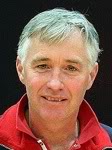
———————————–
Dr Orly Lacham-Kaplan – Dr Lacham-Kaplan is a senior research fellow at the Monash Immunology and Stem Cell Laboratories at Monash University in Melbourne, Australia. Dr Lacham-Kaplan was also the 2007 winner of the BrainLink Prize for her work into development of methods to overcome infertility.
In to this episode she talks to me about what stem cells are, how stem cell research can benefit medical science, and some of Dr Lacham-Kaplan’s research into infertility – and how stem cells are a key component in that research.
18/9/2008 – Episode 72 – Stem cells and infertility

———————————–
Professor Roger Short – Professor Short is the Wexler Professorial Fellow at the Department of Zoology at the University of Melbourne. He was was the Foundation director of the Medical Research Council’s Unit of Reproductive Biology in Edinburgh, Scotland, from 1972 to 1982, and prior to that, he had been on the scientific staff of the Agricultural Research council’s Unit of Reproductive Physiology and Biochemistry in Cambridge, England from 1956 to 1972. In 1989 he was a consultant to the Global Program on AIDS of the World Health Organisation in Geneva.
4/10/2008 – Episode 73 – Asian Elephants Part 1
16/10/2008 – Episode 74 – Asian Elephants Part 2
18/12/2008 – Episode 77 – Saving Asian Elephants Part 1
20/12/2008 – Episode 78 – Saving Asian Elephants Part 2
1/4/2010 – Episode 112 – Taronga Zoo Baby Elephant Birth
4/9/2011 – Episode 143 – The World of the Elephant
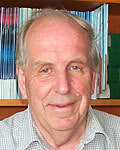
———————————–
Dr Richard Stancliffe – Dr Stancliffe studied at Oxford and Cambridge Universities and is an expert in the phases of stellar evolution – and also happens to be an expert in Middle Egyptian!
He talked to me about First Stellar Generations.
30/10/2008 – Episode 75 – First Stellar Generations Part 1
9/11/2008 – Episode 76 – First Stellar Generations Part 2
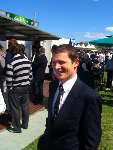
———————————–
Dr Allie Ford – Dr Ford received her PhD from Keele University in the UK. Her research interests include abundances in solar-type stars, Echelle Spectroscopy, Lithium in stars, Science in education, Observational Astronomy and Astrobiology.
I talked to Dr Ford about astrobiology.
22/1/2009 – Episode 81 – Astrobiology Part 1
26/1/2009 – Episode 82 – Astrobiology Part 2
2/2/2009 – Episode 83 – Extract of Astrobiology Interview for 365 Days of Astronomy Podcast
31/1/2010 – Episode 108 – Is Intelligent Life Common in the Universe?
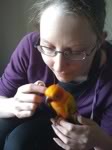
———————————–
Dr Ross Church – Dr Church received his PhD in Stellar Evolution and Stellar Dynamics from Cambridge University. He followed this by postdoctoral research at Lund University in Sweden. He is currently a research fellow at Monash University working on AGB stars, binary stars and stellar dynamics.
20/2/2009 – Episode 86 – Hypervelocity Stars
17/3/2009 – Episode 88 – Binary Star Formation
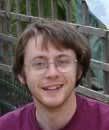
———————————–
Dr Daniel Price – Dr Price is a Monash Research Fellow at Monash University. He received his PhD from the University of Cambridge in the UK, and his research interests include Computational Astrophysics involving Magnetohydrodynamics, Star Formation and the Smoothed Particle Hydrodynamics (SPH) method.
14/4/2009 – Episode 89 – Stellar Formation
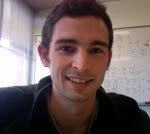
———————————–
Dr Amanda Barnard – Dr Barnard did her PhD in theoretical condensed matter physics at RMIT University in Melbourne. In 2008 she won the L’Oreal Australia Women in Science Fellowship. She is currently working at the CSIRO and spoke to me about nanotechnology.
22/4/2009 – Episode 90 – What is Nanotechnology?
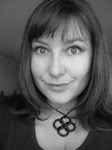
———————————–
Dr Maria Lugaro – Dr Lugaro is a Monash Research Fellow at Monash University in Melbourne, Australia, where she received her PhD. Prior to that, Maria studied in Italy, and she is an expert in the abundances of nuclei produced in giant stars and compare them to spectroscopic observations of stellar abundances and laboratory analysis of exotic meteoritic materials. She talked to me about pre-solar meteoritic grains.
11/5/2009 – Episode 91 – Pre-Solar Grains
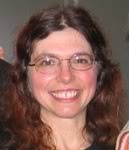
———————————–
Dr Brian Schmidt – Brian Schmidt is an astronomer at the Research School of Astronomy and Astrophysics at the Australian National University, and works in areas such as supernovae, Gamma Ray Bursts, and is heading a project to build a new Telescope which will map the Southern Sky called SkyMapper. He is also the Federation Fellow at The Australian National University’s Mount Stromlo Observatory. He received his PhD from Harvard University, and I talked to him about the work he did in the discovery that the universe was accelerating in its expansion.
23/5/2009 – Episode 92 – The acceleration of the universe
27/3/2012 – Episode 155 – The accelerating universe – public talk
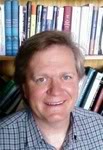
———————————–
Dr Andrew Prentice – Andrew Prentice is a Reader at Monash University in Melbourne, Australia. He has interests in the formation of the solar system, and mathematical description of the physical and chemical processes responsible for the formation of the planetary systems and the satellite systems of the major planets.
3/6/2009 – Episode 93 – Supersonic Turbulence and Plantary Formation
10/6/2009 – Episode 94 – Planets and Satellite Formation
17/6/2009 – Episode 95 – Saturn and it’s system
17/8/2009 – Episode 100 – The Century

———————————–
Dr Ginger Campbell – Dr Campbell is a physician from Alabama, USA, and is the host of the Brain Science Podcast and has been fascinated with all things related to brain science. I talked to her about brain chemistry, plasticity, and brain imaging.
6/7/2009 – Episode 96 – Brain Chemistry, Plasticity and Imaging
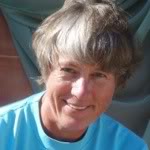
———————————–
Dr Rosemary Mardling – Dr Mardling is an astrophysicist from Monash University and has research interests in dynamical evolution of stellar and planetary systems, dynamical evolution of star clusters; gravitational interactions in the cores of stars clusters (globular clusters, open clusters, and galactic nuclei); tidal capture; the stability of three-body systems and chaos theory; tides in stars and planets; the dynamical and tidal evolution of extra-solar planetary systems; formation of low-mass X-ray binaries; pulsar binaries; and planet formation. She talked to me about extra-solar planets.
11/7/2009 – Episode 97 – Extra Solar Planets
4/6/2011 – Episode 141 – Extra Solar Planet Update
14/9/2011 – Episode 145 – The Three Body Problem
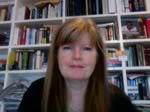
———————————–
Dr Simon Singh is originally a particle physicist, earning his PhD in particle physics at CERN and Cambridge University. He is now well known as an author, journalist and TV producer, having written books and produced TV shows on topics such as the Enigma Machine (“The Code Book”), Fermat’s Last Theorem, The Big Bang, and most recently, “Trick or Treatment”, a book on alternative medicine. He spoke to me about the wonder of science and mathematics, and also on what inspired him, and his latest book.
17/8/2009 – Episode 100 – The Century
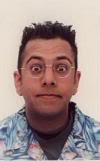
———————————–
Dr Paul Francis is an astronomer from the Australian National University who does research on comets, quasars, high redshift galaxies, and novel interactive teaching techniques.
20/9/2009 – Episode 101 – Comets, Pink Black Holes & Teaching Astronomy
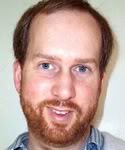
———————————–
Dr Owen Carter is senior research fellow at the Centre for Behavioural Research in Cancer Control at Curtin University in Western Australia. He is also the recipient of the Healthway Research Fellowship in Tobacco Control at CBRCC
30/10/2009 – Episode 102 – The Psychology of Tobacco Advertising
20/1/2010 – Episode 106 – Research into the Ultraviolet Index
8/9/2011 – Episode 144 – What causes childhood obesity?
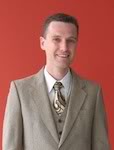
———————————–
Nick Miller began his journalism career at The West Australian newspaper in Perth, covering everything from popular culture to police and politics. He worked as the paper’s Melbourne correspondent for three years, writing about gangland killers, terrorists and the Commonwealth Games. He moved to The Age and edited the Next technology section for almost two years, before switching to the Health area.
19/12/2009 – Episode 103 – English libel law and censorship in science reporting
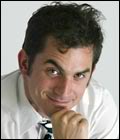
———————————–
Dr Kristen Panfilio is a developmental geneticist whose interests have swung from molecular evolution of the cellular details of morphogenesis. She received her PhD from Cambridge University and is currently working at the University of Cologne, Germany.
20/12/2009 – Episode 104 – Hox Genes and Evolutionary Developmental Genetics

———————————–
Professor Bryan Gaensler is an ARC Federation Fellow at the University of Sydney, having previously held positions at MIT, the Smithsonian Institution, and Harvard University. He works on multi-wavelength observations of magnetism, neutron stars, and interstellar gas, and is the project scientist for the Square Kilometre Array. He was the 1999 Young Australian of the Year, gave the 2001 Australia Day Address to the nation, and was awarded the 2006 Newton Lacy Pierce Prize by the American Astronomical Society. He talked to me about magnetism in the universe.
28/12/2009 – Episode 105 – Magnetism in the Universe
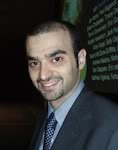
———————————–
Dr Yin Paradies is an Aboriginal-Anglo-Asian Darwinian who has lived in Melbourne since 2007. He is a Research Fellow jointly at the Menzies School of Health Research and the University of Melbourne through the NHMRC Capacity-building in Indigenous Policy Relevant Health Research (CIPHER) program. He has qualifications in mathematics and computing (BSc), medical statistics (MMedStats), public health (MPH), and social epidemiology (PhD) and his research focuses on the health effects of racism as well as anti-racism theory, policy and practice. Yin also teaches multicultural competence to researchers and professionals in Indigenous affairs. Yin has received a range of awards including a Fulbright scholarship to study at the University of California, Berkeley, the Australia Day Council’s 2002 Young Achiever of the Year award, and Scholar of the Year in the 2007 National NAIDOC Awards.
26/1/2010 – Episode 107 – The Effects of Racism
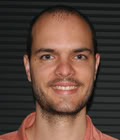
———————————–
Marion Anderson is a planetary geologist who has helped select landing sites for the current generation of NASA Mars Rovers. She teaches the first year geosciences units within the Faculty of Science at Monash University. Marion also has a background in zoology, cell biology and engineering, and is a member of the advisory board of the Victorian Space Science Education Centre.
31/1/2010 – Episode 108 – Is Intelligent Life Common in the Universe?
12/4/2011 – Episode 136 – Spam in a can

———————————–
Evan Bittner is a postgraduate student at the University of Melbourne who is studying Asian Elephants. He has worked at the Melbourne Zoo, and in countries such as Laos in studying and understanding elephants, and has a strong interest in the conservation of the Asian Elephant.
15/3/2010 – Episode 110 – Asian Elephant Conservation – Part 1
27/3/2010 – Episode 111 – Asian Elephant Conservation – Part 2
1/4/2010 – Episode 112 – Taronga Zoo Baby Elephant Birth
4/9/2011 – Episode 143 – The World of the Elephant
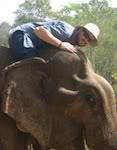
———————————–
Maria Maltseva is an attorney from Washington State in the US, and is well known in the Skeptics community in the US. She spoke to me about the Discovery Institute and the agenda they are trying to push in science classes in the USA.
12/4/2010 – Episode 113 – The Discovery Institute
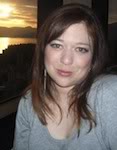
———————————–
Dr Corin Storkey was a PhD student at the Bio 21 Institute at the University of Melbourne. Corin’s research there was focussed on synthesising new compounds that may one day be used as pharmaceuticals to treat patients suffering from NIDD. He is now a postdoctoral researcher at the Heart Research Institute.
30/4/2010 – Episode 114 – Beauty and the Type 2 Diabetes Synthetic Chemist Geek
24/7/2010 – Episode 119 – Cancer Drug Research
20/12/2011 – Episiode 152 – Sugar to Mend a Broken Heart
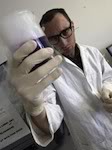
———————————–
Dr Robyn Pickering undertook her undergraduate and MSc studies at the University of the Witwatersrand, South Africa. She completed a PhD at the University of Bern, Switzerland in May 2009 and is currently a Swiss National Science Foundation (SNF) Post Doctoral Fellow at the University of Melbourne. Robyn’s research interests lie in using isotope geochemistry to investigate the age and palaeo-environment of mainly carbonate rocks. She uses U-Pb and U-Th dating methods to provide ages for cave deposits (speleothems) and is particularly interested in the development of the associated laboratory and analytical techniques. Robyn has worked mainly on cave deposits containing early human (hominin) fossil remains, including the new hominin species Australopithecus sediba, and is also interested in human evolution and providing a precise chronology for evolutionary developments. She is currently working on the South African early hominin bearing cave sites near Johannesburg and the early human occupation sites of Pinnacle Points on the southern South African coast.
5/5/2010 – Episode 115 – The Discovery of Australopithecus Sediba
5/12/2011 – Episode 151 – Australopithecus Sedeba Update
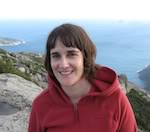
———————————–
Professor Patricia Vickers-Rich‘s research centers on understanding the changes in the biota of Earth during the late Proterozoic, at a time when complex animals first appeared and the major animal phyla were differentiating. She is the Founding Director of the Monash Science Centre on the Clayton campus of Monash University.
20/5/2010 – Episode 116 – The Monash Science Centre
12/7/2010 – Episode 118 – Palaeontology 101
15/8/2010 – Episode 121 – From Slime to Dinosaurs
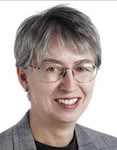
———————————–
Dr Michael Brown is an an observational astronomer whose current research interests include the evolution of active galactic nuclei (AGNs) and the growth of galaxies over cosmic time. He lectures at the School of Physics at Monash University, Australia.
8/6/2010 – Episode 117 – Galaxy Evolution and Active Galactic Nuclei
24/5/2011 – Episode 139 – The Square Kilometre Array
23/3/2013 – Episode 162 – Lies, Damned Lies, and NRA Statistics
27/4/2013 – Episode 165 – The Peer Review Process
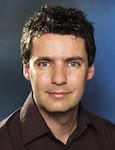
———————————–
Professor Richard Wassersug is from the Department of Anatomy and Neurobiology from Dalhousie University in Canada. He is an expert in herpetology, and of late, has done a lot of work in the area of prostate cancer.
10/8/2010 – Episode 120 – Talking to a Herpetologist
17/7/2011 – Episode 142 – Prostate Cancer
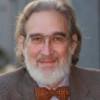
———————————–
Bec Crew is the author of the Save Your Breath For Running Ponies science blog, which won the 2010 National Science Week’s Big Blog Theory award in the Blogging category. She also works at Cosmo Magazine in Sydney.
20/8/2010 – Episode 122 – Science and Education Policy and Election Reactions
18/10/2010 – Episode 128 – Science Communication – Pt 2

———————————–
Anthony David is a senate candidate for the Australian Democrats party in the 2010 federal election in the ACT, and talked to me about his thoughts on science and science policy.
20/8/2010 – Episode 122 – Science and Education Policy and Election Reactions
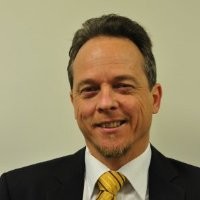
———————————–
Karl Sven Woytek Sas Konkovitch Matthew Kruszelnicki started his science communication career in 1981 whilst a medical student, and has become one of Australia’s best known science communicators. He has degrees in mathematics, biomedical engineering, medicine and surgery. He has worked as a physicist, labourer, roadie for bands, car mechanic, film-maker, hospital scientific officer, biomedical engineer, TV weatherman, taxi driver, and medical doctor. In 2002 he was awarded an Ig-Nobel prize for his research on belly button lint.
20/8/2010 – Episode 122 – Science and Education Policy and Election Reactions
22/10/2010 Episode 129 – Science Communication – Pt 3
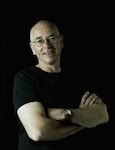
———————————–
Prof Missaka Wijayagunawardane is the Head of the Department of Animal Science at the University of Peradeniya in Sri Lanka. He spoke to me about elephants in Sri Lanka.
2/10/2010 – Episode 126 – The Sri Lankan Elephant
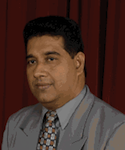
———————————–
Prof Dennis Schatz is the Senior Vice President for Strategic Programs at the Pacific Science Centre in the US. We discussed the topic of communication in science.
16/10/2010 – Episode 127 – Science Communication – Pt 1
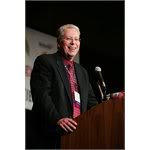
———————————–
Ian Woolf is a Sydney-based science journalist. He hosts and produces Diffusion Science Radio on 2SER and the Community Radio Network, as well as the Here’s Why podcast.
23/10/2010 – Episode 130 – Science Communication – Pt 4
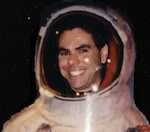
———————————–
Steve Mirsky is a journalist, author, and online editor for Scientific American. He hosts the Science Talk podcast, as well as the 60-Second Science podcast. With a vast amount of science reporting under his belt, I spoke to him about science communication.
15/12/2010 – Episode 131 – Science Communication – Pt 5
2/1/2011 – Episode 132 – Science Communication – Pt 6
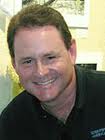
———————————–
Professor Ralph Pudritz is the Director of the Origins Institute at McMaster University in Canada. His research interests include star and planet formation, and the question of “are we alone” ?
19/2/2011 – Episode 133 – From First Stars to First Life
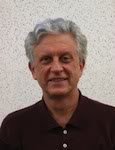
———————————–
Dr Helen Paterson is a Lecturer in Forensic Psychology at The University of Sydney. Her research focuses on how discussion amongst eyewitnesses can influence the accuracy of their individual memories.
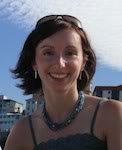
Sadhana Raju creates and delivers fun, interactive demonstrations about psychology to high school students. She developed a multi media presentation explaining the science of psychology and demonstrated some common myths about lie detection for Science in the City at the Powerhouse Museum in August 2010.
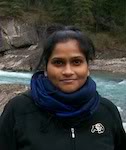
Sadhana and Helen both spoke to me about lying and lie detection.
13/3/2011 – Episode 134 – Lying
———————————–
Professor Claude Roux is the Head of School, Chemistry and Forensic Science at the University of Technology, Sydney. His research activities cover a broad spectrum of disciplines which are aimed at understanding and solving analytical and interpretative problems encountered in Forensic Science. These include trace evidence (fibres, paint, glass etc), document examination (inks, toners), fingerprints and other forms of physical evidence.
19/3/2011 – Episode 135 – Forensic Science
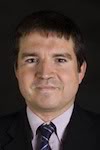
———————————–
Professor Lawrence Krauss is the author of “The Physics of Star Trekâ€, a professor of physics, the Foundation Professor of the School of Earth and Space Exploration and the Director of the Origins Project at the Arizona State University.
16/4/2011 – Episode 137 – Dinner with a Physicist
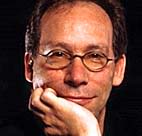
———————————–
Professor Ray Jayawardhana is the Canada Research Chair in Observational Astrophysics and the Steacie Fellow at the University of Toronto. His research interests include the origin and diversity of planetary systems and the formation of stars and brown dwarfs.
21/5/2011 – Episode 138 – Strange New Worlds
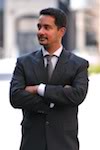
———————————–
Stephen Luntz is a science writer and a journalist for Australiasian Science magazine. He spoke to me about his first book.
4/6/2011 – Episode 140 – Forensics, Fossils and Fruitbats
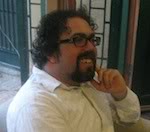
———————————–
Marita Cheng is a Mechatronics Engineering student at the University of Melbourne. Marita is the founder of the Robogals organisation, and talked to me about the organisation.
18/9/2011 – Episode 147 – Who are the Robogals?
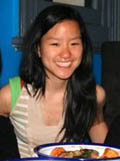
———————————–
Michael Roache is the Program Manager for Threatened Species at WWF-Australia. Michael has written the Action Plan for Threatened Macropods 2011-2021, which argues for a more objective and systematic approach to threatened species recovery in Australia.
1/10/2011 – Episode 148 – Australian Macropod Action Plan
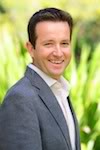
———————————–
Kellie Caught is the National Manager Climate Change for WWF. Ms Caught has been with WWF-Australia for four years, working on pollution pricing mechanisms, clean energy, energy efficiency and international climate change negotiations.
Ms Caught brings a broad range of experience to her role, having worked in politics, academia, state government, the United Nations and non-government organisations. She has a Bachelor of Science, a Postgraduate Diploma in Psychology and a Masters of International Business.
13/10/2011 – Episode 149 – Say Yes Campaign
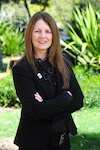
———————————–
Dr Duncan Galloway is the ARC Future Fellow at Monash University, working on satellite X-ray observations of accreting neutron-star binaries, searches for gravitational waves, and radio transients with next-generation wide-field telescopes. He was previously a Monash Fellow; a Centenary Fellow at the University of Melbourne; and a postdoctoral associate at the Kavli Institute for Astrophysics and Space Research at the Massachusetts Institute of Technology. He received his PhD from the University of Tasmania in 2000.
22/1/2012 – Episode 153 – Neutron Star Binaries
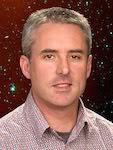
———————————–
Professor Chris Tinney is an Australian Professorial Fellow at the University of New South Wales, where he heads the Exoplanetary Science group within the Dept of Astrophysics in the School of Physics.
11/6/2012 – Episode 156 – The Search for Extrasolar Planets
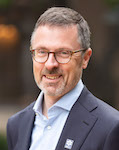
———————————–
Dr Erica Sloan is a lecturer in the Faculty of Pharmacy and Pharmaceutical Sciences at the Monash Institute of Pharmaceutical Sciences
17/8/2012 – Episode 157 – Where is my flying car? Part 1
31/10/2012 – Episode 158 – Where is my flying car? Part 2
23/12/2012 – Episode 159 – Where is my flying car? Part 3
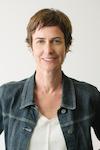
———————————–
Dr Andi Horvath is the Senior Curator at Museum Victoria and a 3RRR Science broadcaster. Her work history includes member of the Shell Questacon Science Circus, Victorian Manager of CSIRO Science Education Programs, Science Education lecturer to future Primary school teachers at Monash, and tutor to scholars of History and Philosophy of Science at Melbourne University.
17/8/2012 – Episode 157 – Where is my flying car? Part 1
31/10/2012 – Episode 158 – Where is my flying car? Part 2
23/12/2012 – Episode 159 – Where is my flying car? Part 3
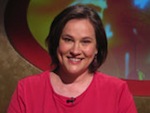
———————————–
Tim Thwaites is a freelance science writer and broadcaster who specialises in putting science, medicine and engineering into everyday language. He has 30 years experience of writing, editing, sub-editing, teaching and broadcasting in Australia and overseas.
17/8/2012 – Episode 157 – Where is my flying car? Part 1
31/10/2012 – Episode 158 – Where is my flying car? Part 2
23/12/2012 – Episode 159 – Where is my flying car? Part 3
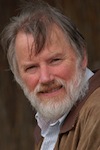
———————————–
Sir Harold Kroto is a co-winner of the 1996 Nobel Prize for chemistry for the discovery of carbon-60. He is the Francis Eppes Professor of Chemistry at the Florida State University, and talked to me about the discovery of carbon-60 and the state of science worldwide.
11/2/2013 – Episode 160 – Buckminsterfullerine
28/2/2013 – Episode 161 – The State of Science
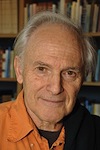
———————————–
Sir Paul Nurse is is President of The Royal Society in the UK, and the Nobel Laureate in Medicine or Physiology for 2001
24/4/2013 – Episode 163 – Making Science Work – Part 1
24/4/2013 – Episode 164 – Making Science Work – Part 2
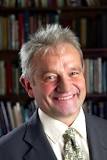
———————————–
Robert Lloyd is an actor, a comedian, television host, and the world’s #1 Doctor Who fan. He spoke to Brains Matter about his love of all things Doctor Who, in time for the 50th anniversary of the show.
12/5/2013 – Episode 166 – 50th Anniversary of Doctor Who – Part 1
26/5/2013 – Episode 167 – 50th Anniversary of Doctor Who – Part 2
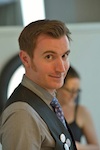
———————————–
Matthew Witkowski is a cancer researcher at the Walter and Eliza Hall Institute in Melbourne. His PhD research is looking at the link between the Ikaros Gene and the expression of leukaemia and he spoke to me about his research. Matt was also runner up in a national “Bachelor of the Year” competition in 2013!
14/7/2013 – Episode 168 – Leukaemia and the Ikaros Gene
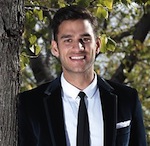
———————————–
Associate Professor Charley Lineweaver researches the analysis of the statistical distribution of exoplanets, the cosmic microwave background radiation, and cosmological prerequisites for the formation of terrestrial planets and life at the Australian National University.
7/8/2013 – Episode 169 – The Birth, Life, and Death of our Planet… and the Universe
4/4/2016 – Episode 175 – Is Our Solar System Special?
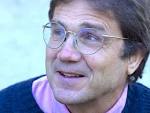
———————————–
Sarah Sweet is a PhD candidate at the University of Queensland. She uses wide-field, multi-band photometry to pre-select UCD populations in more distant galaxy groups, to confirming these populations with multi-object spectroscopy in order to test how these objects form
17/8/2013 – Episode 170 – Astronomical Society of Australia Poster Sessions
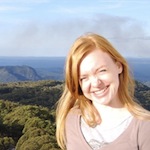
———————————–
Sarah Bruzzese is a PhD candidate at the University of Western Australia. She is undertaking a study that aims to investigate the effects on a non-universal IMF and place constraints on its form, while assuming a star formation history, using Hubble Space Telescope data.
16/11/2013 – Episode 171 – Astronomical Society of Australia Poster Sessions
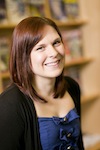
———————————–
Dr Lisa Harvey-Smith is a research astronomer with the CSIRO in Australia. Her interests include planetary nebulae, the origin and evolution of cosmic magnetism, supernova remnants, massive star formation and astrophysical masers. She is also the Project Scientist for the Australian Square Kilometre Array Pathfinder (ASKAP).
18/8/2014 – Episode 172 – The SKA

———————————–
Associate Professor Brad Carter lectures and conducts research in physics and astronomy at the University of Southern Queensland (USQ). Brad’s research interests include the use of stellar studies to better understand the Sun and the study of planets around nearby stars
6/12/2014 – Episode 173 – Space Weather
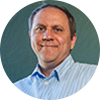
———————————–
Dr Zara Dennis teaches high school physics and has a varied background ranging from sports science, to science outreach in the space sciences to geophysics. She also has a project to teach kids about flying and show her passion for science through that effort.
3/9/2015 – Episode 174 – From Sports Science and Geophysics to Teaching
30/9/2017 – Episode 184 – SciFly STEM Outreach

———————————–
Dr Anushi Rajapaksa academic Biomedical Engineer and researcher in the field of novel respiratory technologies at the Murdoch Childrens Research Institute.
7/5/2016 – Episode 176 – Spray Vaccines
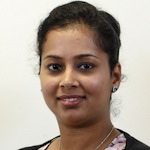
———————————–
Angus Wright is a PhD candidate from the University of Western Australia, specialising in Galactic Formation & Dynamics. He spoke to me about radio astronomy and the GAMA project.
12/5/2016 – Episode 177 – ICRAR and GAMA
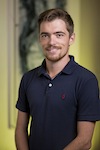
———————————–
Dr Roland Crocker is a researcher from the School of Astronomy & Astrophysics at the Australian National University who does research into high energy astrophysics and cosmic rays. He spoke to me about Fermi Bubbles.
30/8/2016 – Episode 178 – Fermi Bubbles
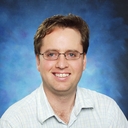
———————————–
Dr Michael Childress is a postdoctoral fellow from the Australian National University who does research into supernovae. His research interests include the Progenitors of supernovae, dark energy, and stellar population of galaxies.
28/10/2016 – Episode 179 – Supernovae
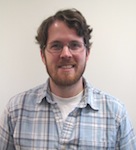
———————————–
Anant Tanna is a PhD researcher from the University of New South Wales School of Physics. We talked about his work in the search for invisible galaxies
05/04/2017 – Episode 181 – Searching for Invisible Galaxies
03/06/2017 – Episode 183 – Outreach and Science Fun
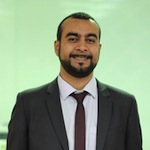
———————————–
Joanna Corby was a PhD researcher from the University of Virginia, who was visiting the University of New South Wales as part of her work. We talked about Joanna’s work in the hunt for large organic molecules within the galaxy.
02/06/2017 – Episode 182 – Galactic Large Organic Molecules
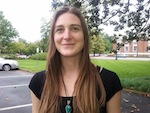
———————————–
Kirsten Banks is a physics and astronomy student at the University of New South Wales, and has a keen interest in archaeoastronomy and ancient Aboriginal astronomy from Australia.
22/05/2018 – Episode 185 – Archaeoastronomy and Aboriginal Astronomy
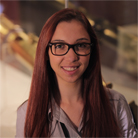
———————————–
Dr Jake Owens is a Postdoctoral Fellow for the Global Cause Foundation and a researcher at the Chengdu Research Base of Giant Panda Breeding in Sichuan Province, China. Since 2014, Jake has worked as part of an international team of scientists to develop a program to release giant pandas into the wild. As a broadly trained expert in field research and animal behaviour, his research and conservation efforts have taken him to every continent except Antarctica to study and protect countless species.
10/06/2018 – Episode 186 – Giant Panda Conservation

———————————–
Dr Dyani Lewis has a PhD in plant genetics spoke to me on the following topics.
30/03/2019 – Episode 187 – Plant Genetics
10/09/2019 – Episode 189 – Science Journalism
05/09/2020 – Episode 195 – Studying Chlamydia
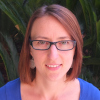
———————————–
Michael Dalton-Smith is a Canadian adventurer with over ten years of experience filming in some of the most remote and challenging places in the world. He spoke to me about the release of his latest documentary on IMAX, “Volcanoes 3Dâ€
01/04/2019 – Episode 188 – Volcanoes 3D

———————————–
Nick Robinson began his career as a marine biologist but moved into documentary film making. His first documentary as a director won the French Senate 2005 Audio Visual Award for Best Adventure Documentary.
Nick spoke to me about his latest film, “Australia: The Wild Top End 3D”
15/09/2019 – Episode 190 – The Wild Top End
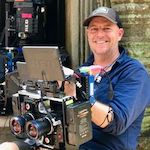
———————————–
Jamali Kigotho is an enthusiastic science and engineering undergraduate student. Due to growing up both in Australia and Kenya he has always been passionate about sustainable development. Jamali hopes to have a broad impact in multiple areas of sustainable development.
Jamali spoke to me about the work he has done in Kenya as well as some of his other interests in science and engineering.
11/01/2020 – Episode 191 – Sustainability in Kenya
22/08/2021 – Episode 200 – Rooftop Wind Turbines

———————————–
Dr Karen Lewis is an Australian astrophysicist who spoke to me about her work at the Tokyo Institute of Technology in looking for moons around planets elsewhere in the universe
19/03/2020 – Episode 192 – Discovering Moons Around Extra Solar Planets
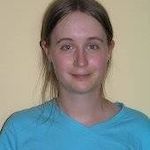
———————————–
Troy Love is a former radio DJ and a current keynote speaker with Great Talk Australia, where he speaks to corporates on the value of a sense of humour in the workplace. I spoke to Troy about the importance of keeping a sense of humour and what we can do for ourselves during the covid-19 pandemic
17/05/2020 – Episode 193 – Humour in Lockdown

———————————–
David Lee is a Technology professional who’s curious about how education and technology can combine to create memorable learning experiences.
19/07/2020 – Episode 194 – Coding Skills at School
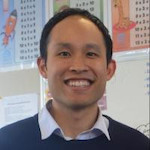
———————————–
Bec Lin is in the final year of her undergraduate double degree in Architecture and Civil Engineering at Monash University, and competed in the Mixed-use Multi-family division of the U.S. Solar Decathlon Design Competition.
27/09/2020 – Episode 196 – The Monash Solar Decathlon Team
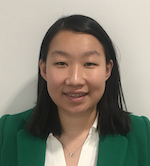
———————————–
Shiyen Perera is a third year Chemical Engineering and Biomedical Science student at Monash University. He is part of the Monash Solar Decathlon Team and in the Attached Housing Division
27/09/2020 – Episode 196 – The Monash Solar Decathlon Team
Cyndy Li is a third year Architecture student at Monash University with a background of finance and real estate and competed in the Monash Solar Decathlon Team in the Attached Housing Division
27/09/2020 – Episode 196 – The Monash Solar Decathlon Team

———————————–
Dr Onisha Patel is a structural biologist at the Walter and Eliza Hall Institute of Medical Research (WEHI) in Melbourne, Australia. She spoke to me about Structural Biology and the Superstars of STEM Programme
25/10/2020 – Episode 197 – Structural Biology & Superstars of STEM
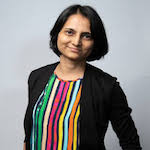
Luke Steller is a PhD candidate at the Australian Centre for Astrobiology at the University of New South Wales. He spoke to me about astrobiology.
30/12/2020 – Episode 198 – What are the ingredients of life?
15/3/2021 – Episode 199 – Does Venus have conditions for life?
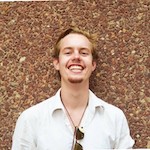
Ayush Pandhi is a second year PhD student at the University of Toronto studying magnetic fields in the Universe at all scales. His area of interest covers studying the magnetic properties of energetic objects such as pulsars and fast radio bursts.
03/10/2022 – Episode 201 – Polarisation and Magnetism in Space

———————————–
Dr Jürgen Knödlseder is an astrophysicist working in the field of gamma-ray astronomy at IRAP (CNRS) in Toulouse, France. He also does research on the environmental impact of scientific research, and is engaged in local politics with a strong focus on the environment.
30/5/2023 – Episode 202 – Measuring Gamma Rays
4/6/2023 – Episode 203 – Sustainability in Science Research

———————————–















